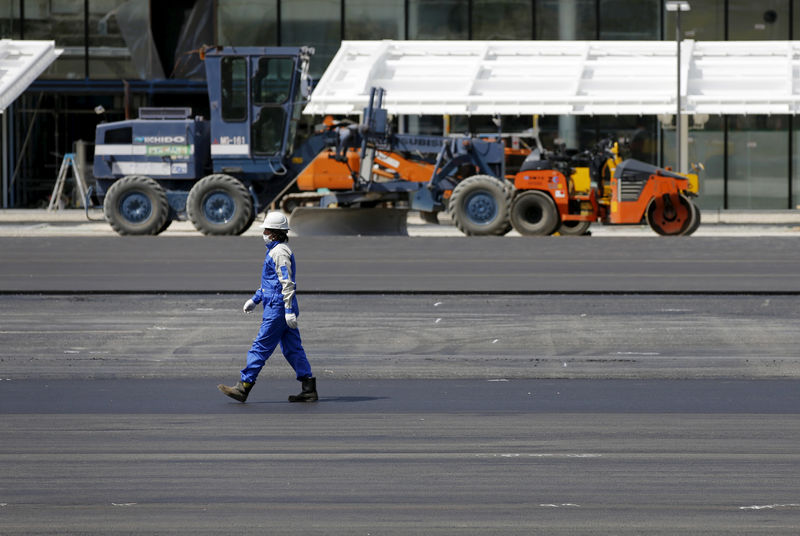By Stanley White
TOKYO (Reuters) - Japan's core machinery orders rose more than expected in March but companies expect orders to decline in the current quarter as firms become increasingly cautious due to a rising yen and weakness in overseas economies.
The 5.5 percent rise in core orders was more than the median estimate for a 0.5 percent increase in a Reuters poll of analysts. In February, core orders fell 9.2 percent.
Companies surveyed by the Cabinet Office forecast core orders, which exclude those of ships and electric power utilities, would fall 3.5 percent in the April-June quarter.
The data suggests companies are starting to delay their investment plans due to uncertainty about the overseas economy and signs that domestic consumer spending is struggling to gain momentum.
"Capital expenditure has entered a period of stagnation," said Hiroaki Muto, economist at Tokai Tokyo Research Center.
"The government needs to focus on supply-side measures. The global economy is losing momentum and the yen is stronger than most companies would like it to be right now."
Japan's companies have strong capital expenditure needs because capital stock is old and industries need to upgrade facilities to make up for a shortage of workers.
Despite this, spending has been weak.
Gross domestic product data for the first quarter this week showed household spending lacked strength and capital expenditure fell, a worrying sign that domestic demand could falter.
In January-March, core orders rose 6.7 percent from the prior three months.
Compared with a year earlier, core orders, a highly volatile data series regarded as an indicator of capital spending in the coming six to nine months, rose 3.2 percent in March, more than a median estimate for a 0.8 percent increase.
Policymakers are counting on an increase in capital expenditure to fuel gains in productivity, create new jobs and increase wages.
A weekend gathering of Group of Seven finance leaders may expose a rift on issues ranging from currency and fiscal policies within the close-knit group of advanced economies, dashing Japan's hopes of mustering a coordinated policy response to spur global growth.
